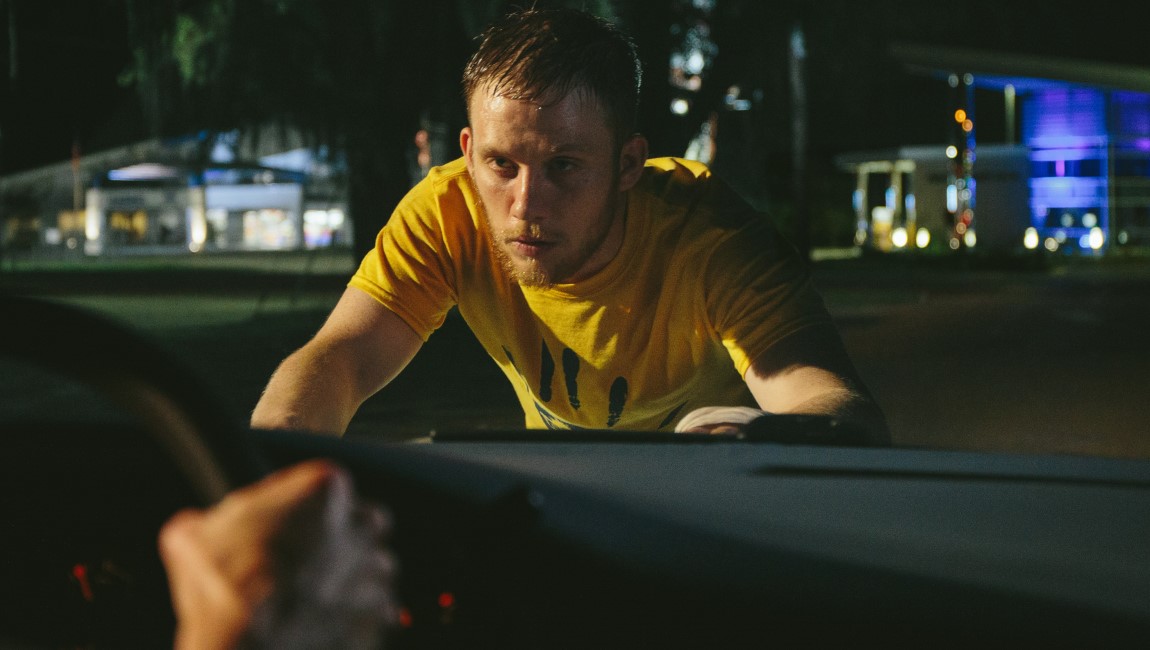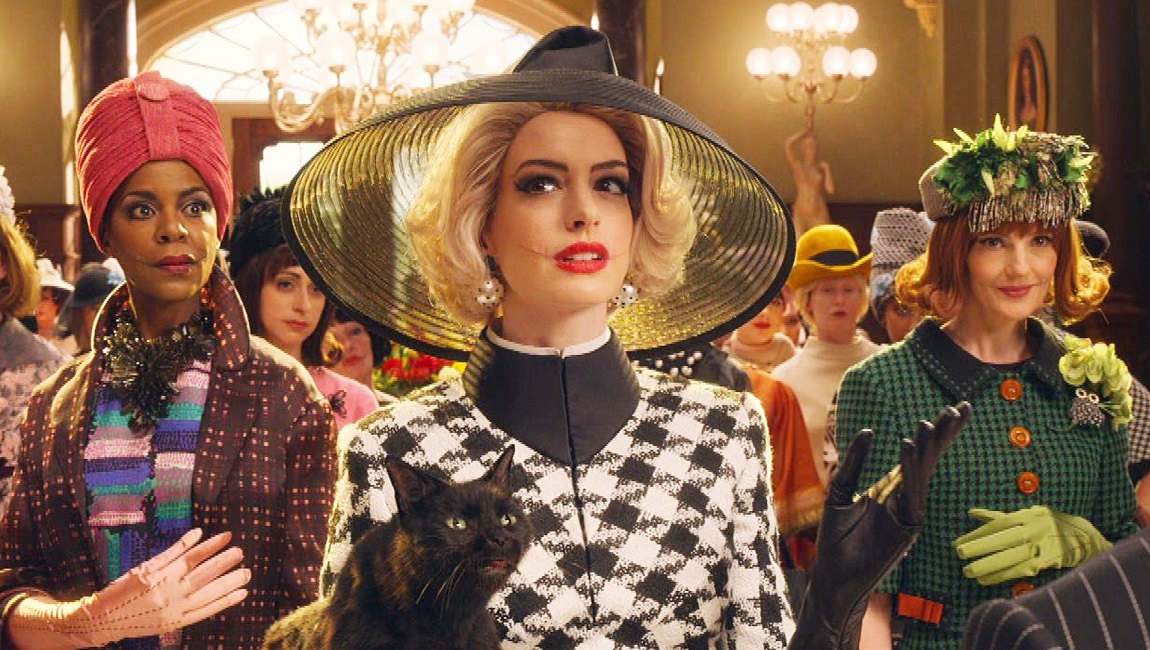Religious iconography and the unofficial symbols of nationalism, when not one and the same, serve a similar purpose. A vehicle, a symbol of salvation if one suffers enough, is the center of the infamous “Hands on a Hard Body” competition. Akin to the rat-race dance marathon of They Shoot Horses Don’t They, Hard Body participants must outlast one another in not breaking contact with the coveted vehicle. Unfortunately for German-born filmmaker Bastian Günther, his cinematic take on the mythical tournament, One of These Days, is at best passably watchable and at worst traps viewers as if they too were resting their hand on the Texas sun-baked hood of a 2006 Ford. Another key feature of the competition is that participants cannot sleep, but thanks to the brief appearance of a talking car, this luckily shouldn’t be so much of a problem for viewers.
The film’s two key characters are divorcee Joan (Carrie Preston), who runs PR for the dealership, and Kyle (Joe Cole), our central competitor. He is unemployed and trying to provide for his wife and daughter, so he takes the contest far more seriously than his competitors who have begun to play mind games with him. He drifts off into dreams and hallucinations as he grows tired, but none are particularly instructive as to who his character is or what history he harbors. The Nissan truck hopeful is never much more than a mannequin in a baseball cap.
The resultant mishmash of heightened stereotypical characters and American iconography ends up as more of a mockery of working-class America than a satire of the class divide that pervades their lives. Though plenty of major recent films have taken the route of portraying the evil innate to the egregiously wealthy as a critique of capitalism, to increasingly poor effect, One of These Days would have done well to find a target rather than just generally punching down. It’s not that there’s nothing to criticize about a flag-waving, lifted truck-driving churchgoer — Günther just doesn’t quite know where to point the muzzle. The comparison of the capitalism-motivated degradation that the competition asks of its competitors and a similar suffer-for-your-sins process that religion demands is apt but far too obvious. More subtle is the film’s suggestion of the omnipresent carceral state, as the competitors must always remain watching, and are in turn watched by the cops who surround them. They pose as if cuffed to the car, shackled only by desperation.
If anything, Günther plays the material far too safe. There are hints at a much better movie, where this cast of put-upon vultures waiting to pounce on the last meat for miles is as ruthless and uncouth as reality. A woman recites her Bible, over and over, and she stands beside the car. She operates as if her belief could save her, like if she says everything right maybe, she will be welcomed to the salvation of a new vehicle. Of course, these characters have every right to curse and brawl and say their Hail Marys, but One of These Days is too careful not to be cruel. These shallow characters aren’t given the freedom to be unforgivable, or even complicated. We learn less about them through the film that we would if we had actually just stood behind them, hand against a Nissan. Defining character moments are included only when they can be massaged into a tidy statement, carried away in an ambulance to represent the fool who made the mistake of kindness. Another walks away into the night, now unburdened by the exhaustion of constant work with no reward. There are keen observations regarding the nature of the Hands on a Hard Body contest buried within One of These Days, but we don’t need characters to spell all these moments out. Instead, Günther should have shown them living such truths.
Published as part of InRO Weekly — Volume 1, Issue 15.







